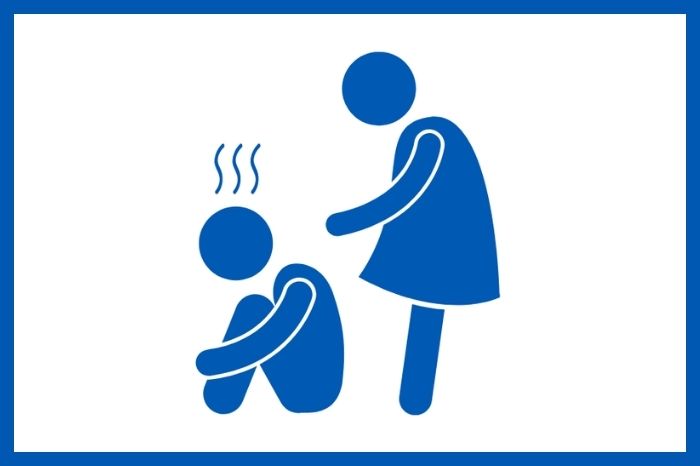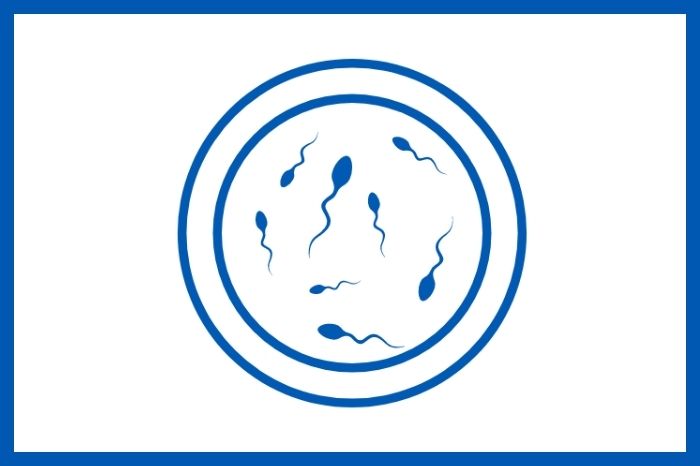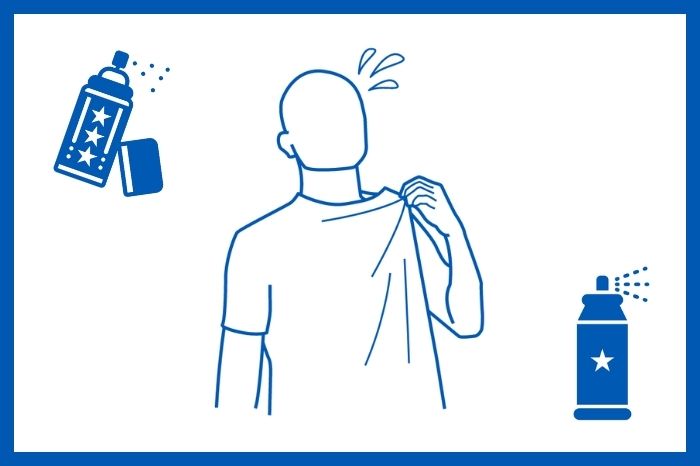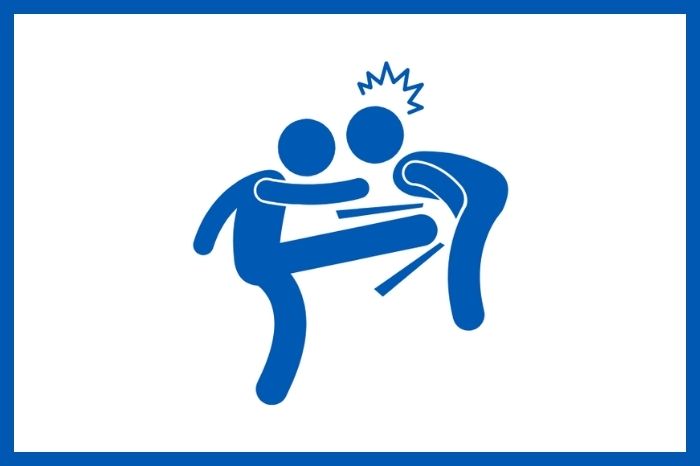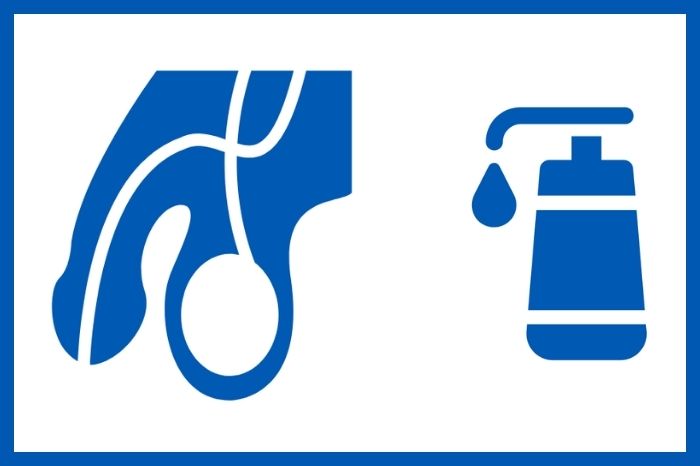Dry and peeling penis: it can be something simple or even an STD!
Dryness and consequent peeling of the skin of the penis usually occurs as a result of friction, irritation or an allergic reaction, but other possible causes include some diseases.

A dry and peeling penis can be an isolated symptom, or it can be associated with itching, burning and redness, depending on the cause.
Most cases do not configure something serious. However, in some situations the man needs topical or oral medications to treat the underlying problem.
Causes of dryness and peeling of the penis
We list the most common causes that do not require medical intervention to the most worrisome and require treatment.
1 - Friction and irritation
Repetitive friction in the genital area can irritate the skin and lead to dryness, scaling and itching of the penis. Some practices, apparently harmless, but which generate friction and irritation are:
- Wearing tight clothing;
- Masturbation without lubrication;
- Having sex without using lubricant;
- Wash the penis several times a day;
- Wash with very drying soaps for the skin.
Using a lubricant during intercourse and masturbation reduces friction on the penis. Also, opting for comfortable clothes and cotton underwear prevents chafing and keeps the genital area airy.
2 - Contact dermatitis - allergic reaction
Contact dermatitis is a skin reaction to an allergen or irritant. It can affect any area of the body, including the penis.
Symptoms of contact dermatitis include:
- Peeling or cracking of the skin;
- Burning and irritation; Inflammation;
- Dry skin;
- Redness.
Common causes of contact dermatitis on the penis are:
- Allergy to condom latex;
- Allergenic ingredients in soaps;
- Clothes cleaning product.
In case of dermatitis on the penis, the solution is to identify and remove the offending agent, in addition to using moisturizers for sensitive skin. If the dermatitis is aggravated, the doctor may prescribe corticosteroids.
3 - Candidiasis - fungal infection
Candida fungus infection, also known as thrush, is common and affects both men and women. This fungus lives naturally in the body, but under specific conditions it can proliferate, leading to the appearance of symptoms.
In men, it affects the head of the penis, making the glans and foreskin dry and itchy. In addition, the other symptoms are:
- Irritation;
- Redness;
- Inflammation;
- Pain when urinating;
- Painful sexual intercourse.
People are more likely to get a candida infection after taking medications such as antibiotics, corticosteroids, and immunosuppressants, which upset the body's immune system and normal microbiome.
People with uncontrolled diabetes are also at greater risk. Although a thrush is not technically a sexually transmitted disease (STD), it can be passed from person to person during sexual intercourse.
4 - Atopic dermatitis - eczema
Atopic dermatitis is the most common form of eczema affecting more than 18 million adults in the United States alone, according to the National Eczema Association.
Atopic dermatitis is most common in wrinkles on the hands, face, and elbow, but it can appear anywhere on the body, including the penis.
Symptoms of atopic dermatitis include:
- Dry, cracked or scaly skin of the penis;
- red spots;
- Small scabs.
Symptoms of atopic dermatitis can come and go, and people with this condition may have asthma and associated seasonal allergies.
5 - Genital psoriasis
Psoriasis is an autoimmune disease that causes dry, scaly, red skin that is itchy and painful. It can affect the skin of any area of the body. When it affects the genital region, it is called genital psoriasis.
It is estimated that up to two-thirds of people with psoriasis have the condition in their genitals at some point.
Other symptoms of psoriasis are:
- Swelling and stiffness of the joints;
- Thick and scaly nails.
6 - Balanite
It is the inflammation of the glans, that is, the head of the penis. The condition is more common in uncircumcised people, according to the American Osteopathic College of Dermatology.
Symptoms include:
- Ulcerated or scaly sores;
- Peeling of the skin of the head of the penis;
- Unpleasant smell in the place;
- Pain;
- Itching in the glans;
- Redness;
- Pain when urinating;
- Accumulation of fluid around the affected area;
Many conditions and factors can contribute to the development of balanitis, such as:
- Poor hygiene of the penis;
- Allergy;
- Drug interactions;
- Bacterial, viral or fungal infections;
- Certain skin conditions such as psoriasis and seborrheic dermatitis;
- Reactive arthritis;
- Bowen's disease, an early form of skin cancer.
7 - Genital herpes
Genital herpes is an STD that affects one in eight people between the ages of 14 and 49 in the United States alone, according to the American Health Association.
Most of these people don't know they have the infection because the symptoms are very mild, most of the time. But when symptoms do appear, they include sores on the penis, scrotum, anus, and buttocks, as well as:
- Peeling of the skin of the penis, after the eruption of sores;
- Pain;
- Painful pressure;
- Flu-like symptoms.
8 - Syphilis
Syphilis is also an STD. The condition starts as a painless sore on the part of the body where the infection first entered, then spreads to the rest of the body. If ulcers occur on the penis, it can cause the skin to peel in this area.
In addition to sores and scaling, the other symptoms are:
- Muscle pain;
- Fever;
- hair loss;
- Mouth ulcers;
- Sore throat.
It is important to seek treatment for syphilis as soon as possible. In the early stages, medications can treat the condition. Without treatment, it can cause serious organ damage.
Natural remedies for dry penis skin
Sometimes home remedies can successfully resolve dryness and scaling, or help manage symptoms of chronic conditions such as psoriasis and eczema. These treatments include:
- Practice good hygiene and keep the penis clean and dry;
- Use natural and hypoallergenic soaps, in addition to being careful with clothes washing products;
- Using lubricants during sex and masturbation;
- Use polyurethane condoms instead of latex if the person is allergic to latex;
- Avoid skin irritations. Scented products are often very irritating;
- Apply emollient creams or natural oils, such as coconut oil, to soften and moisturize dry skin.
- Wear looser, cotton underwear;
- Consider circumcision in cases of chronic recurrent inflammation of the glans.
medical treatments
Medical treatment options for dry or flaky skin on the penis depend on the underlying cause.
Sometimes self-limiting causes heal with home treatment, but in other situations, medication will be necessary.
Chronic skin conditions such as psoriasis and dermatitis require medical treatment when the condition is aggravated. But often, properly hydrating the skin with appropriate moisturizers, in addition to eliminating the aggressive agents, is able to control the progression of the disease.
People who suspect they have an STI should always seek medical attention to prevent complications and to avoid infecting others. The type of treatment they receive depends on the stage and severity of the infection.
To complete
Peeling skin on the penis does not usually indicate a serious medical condition. Often, it is a sign of allergy and irritation due to the use of allergenic hygiene products and very drying of the skin, or even the constant friction in the genital region.
However, it can set up a chronic skin disease that requires the use of medications to control the disease, in addition to avoiding agents that worsen the condition. Other times, penile peeling can suggest an STD. In both cases, you should seek medical help to treat it as soon as possible and avoid worsening.


